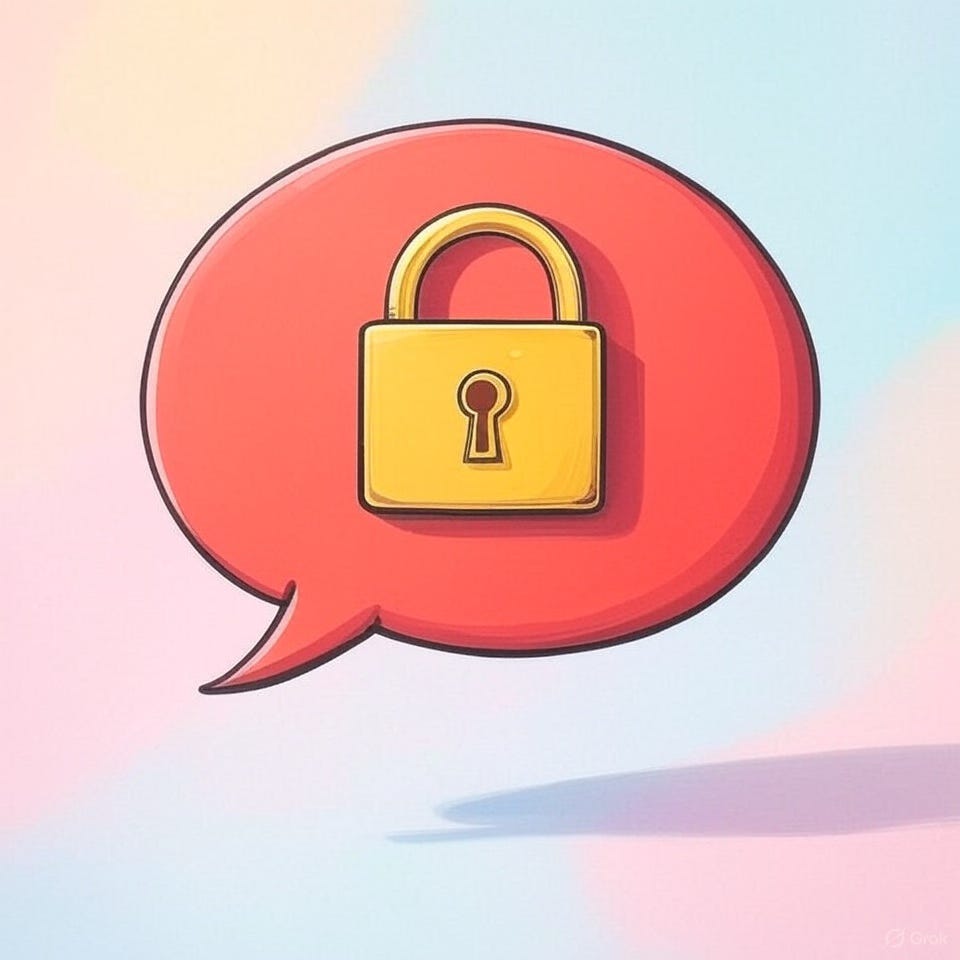Censors Are Like Bad Dads
"Father State knows what is best..."
Should the people decide what they post, or should someone decide for them?
This question is at the heart of censorship. The censor decides for others what can be said and what cannot. But should he?
By determining such things, the censor deems himself especially wise, far above the common folk.
In 2016, Markus Meechan, a UK YouTuber, posted a video of his dog performing the nazi salute.
It was meant as a joke, and therefore distasteful at worst. But the authorities did not see it that way and convicted him of a hate crime. They fined him £800; had he not paid it, they would have thrown him in jail.
The authorities argued they were prosecuting a crime. Meechan argued he was only memeing, but was forced to pay in the end.
In this case, those in power decided what speech should be punished (or: silenced through punishment).
Is silencing speech wrong?
It may be strange to even ask. To those who enjoy its benefits, the value of free speech seems self-explanatory, like water to a fish. But if we are to defend free speech, we should at least establish why.
The Enlightenment thinkers (who laid the foundation of the free world) believed free speech to be a natural right.
Humans, by nature, are expressive beings. To stifle speech is to stifle the ability to transfer thought. By thinking together, we solve problems together.
This way, we expand group consciousness, making us formidable as a species. Censors, instead, put roadblocks on the circuits of humanity’s common brain.
The curious among us are bound to wonder and discuss, because that is what humankind is innately like.
Censorship interferes with this core human quality.
It does so by prioritizing the authority of the few over the many. The few in power restrict the freedom of the many, claiming to know what is best for everyone. There is a term for that: paternalism.
Like bad fathers, paternalists pretend they have it all figured out.
Under the guise of wisdom, they make others do their bidding. But in reality, they merely belittle those under their guardianship, denying them independence: the ability to problem-solve. Crudely put, paternalists control others to hide that they do not deserve to.
A leader who must force others to follow him is a bad one.
Typically, when the state says it “knows best,” it is expanding control, often with dangerous consequences.
The Chinese Social Credit System is a good example. It assigns its people scores based on obedience. Those scores, in part, determine the quality of their lives.
Like good little boys and girls, citizens get the treats they desire, but only if they play nice.
A healthy government does not belittle its citizens, but treats them like adults.
When a government serves its people well, it respects their autonomy. It recognizes that their decisions are their right as well as their responsibility. Since adults can distinguish between good and bad decisions, they typically know what is good for them (at least more so than strangers in government).
The desire to infantilize is, ironically, immature - and therefore undeserving of authority.
Unfortunately, paternalists do not accept this criticism.
That is why they censor. Bad leaders monopolize information because, beneath their veneer of certainty, they are insecure. Any argument that questions their authority is a threat best rooted out.
They act like “the adults”, but are childishly afraid.
So, is censorship ever justified?
Some ideas are truly toxic. The world would be better if no one denied the Holocaust. The problem is whether you censor them or not, someone will.
Censorship thus rarely solves the problem, and is never without danger.
The one with the worst beliefs (a fascist, a communist) typically wants to censor all others.
The best thing to be said about censorship is that it could (in theory) protect us from the worst ideas. But, the many should decide what the worst ideas are, not the few. The worst thing to be said about censorship is that it protects tyrants from criticism.
The negatives, therefore, seem to outweigh the positives.
Governments justify censorship in the name of “safety”.
It would be fair to ask exactly whose safety they care for. Rooting out criticism guarantees the safety of the powerful. Those who seek control over the public only feel safe if they maintain it.
The full safety of the government implies the full submission of the governed.
The alternative is to let the marketplace of ideas be free.
If ideas can compete without interference, only the strongest survive. Both right and wrong opinions will be given their due. Through open debate, the truth may emerge.
It still depends on whether people can recognize good arguments. But the more participants, the greater the chance someone gets it right.
Democracy means every individual gets a say.
Consciousness, that core human spark, withers if it remains unexpressed.
Society is made up of conscious individuals. Expression is the mechanism through which they connect. A society that does not respect free expression, therefore, does not respect itself and is bound to fall into ruin.
To flourish - both as individuals and as groups - we must cherish free expression.



